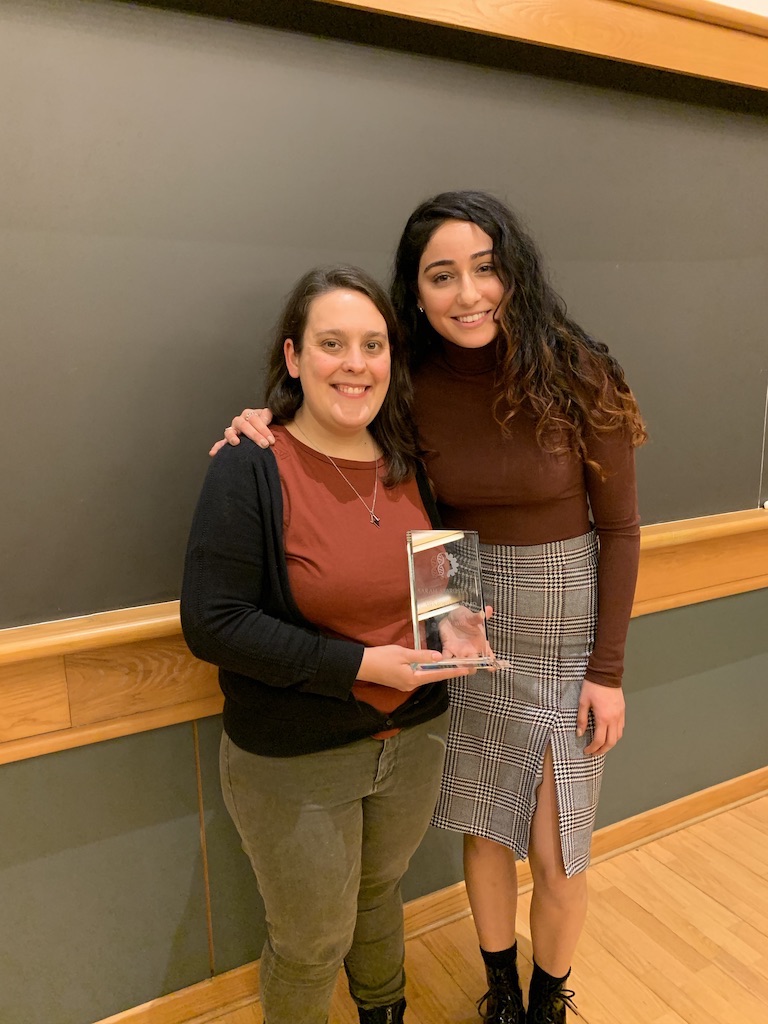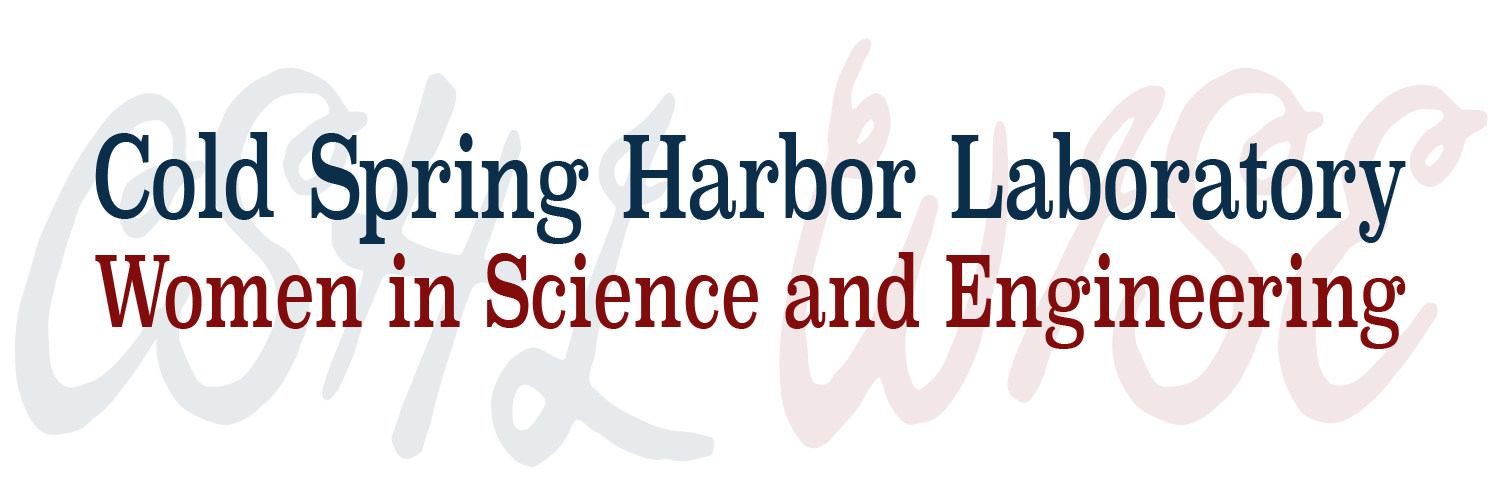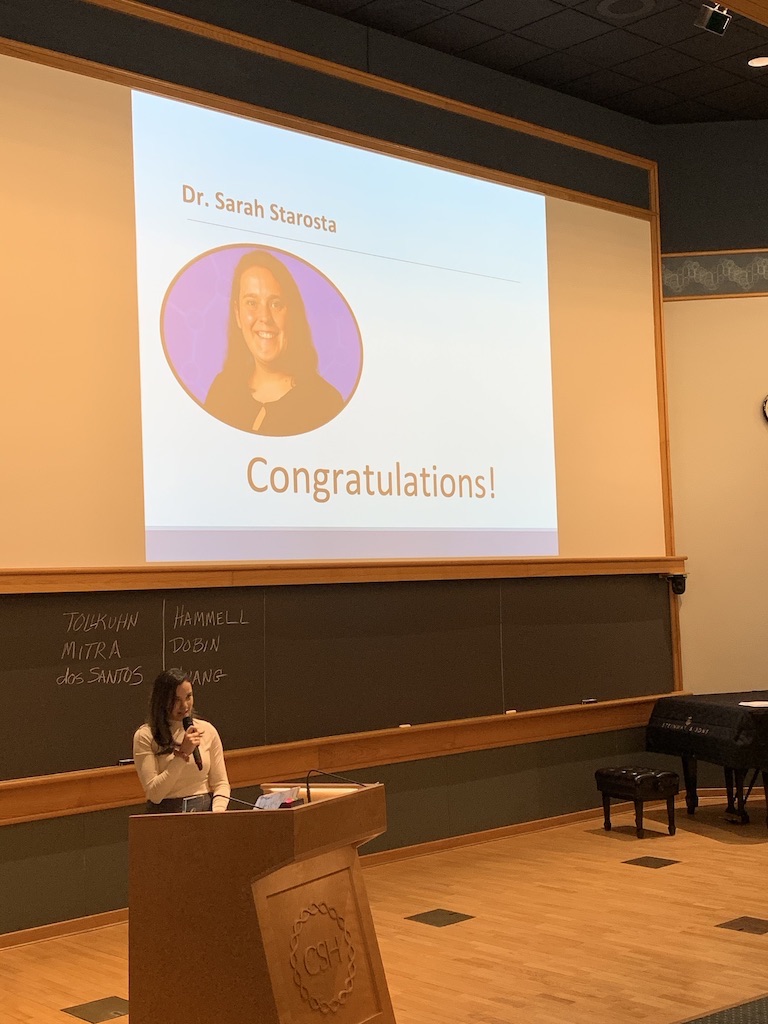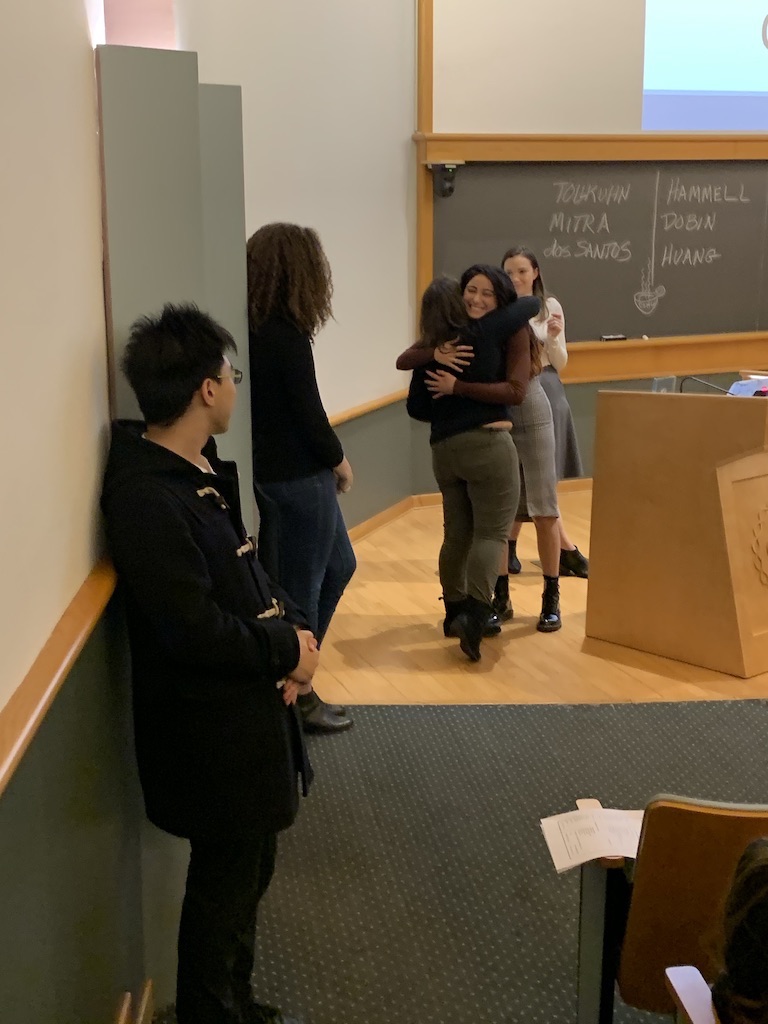Last week, the 2019 CSHL WiSE Mentorship Award in the postdoc/student category was presented to neuroscientist Dr. Sarah Starosta, a postdoctoral researcher in Adam Kepecs’ lab, by MD/PhD student and labmate Tzvia Pinkhasov with a beautiful speech, so I asked Tzvia to write a guest #WiSEWednesday for this amazing mentor and scientist. Thank you both for your contributions!

Dr. Sarah Starosta was awarded the WiSE mentorship award for her dedication to mentoring scientists starting off in their careers, including undergraduates, graduate students, and research technicians. She is a post-doc in the Kepecs Lab, where she studies the neural circuits underlying effort-based decision making in healthy and disease states. She is specifically interested in how dopamine and other neuromodulators in the brain encode and drive decisions to leave or stay during foraging for rewards.
Dr. Starosta earned her Bachelors and Masters degrees in Psychology and PhD degree in Neuroscience at Ruhr-University in Bochum, Germany, a couple of hours away from her hometown. When I asked Sarah how she ended up in Psychology, she said she wanted to understand human behavior, but she didn’t know in what capacity. When she tried her hand at research, she felt it was a natural fit for her. Until her post-doc, Sarah has worked with pigeons, a classic animal model in Psychology research. During her PhD, she investigated extinction learning, or the weakening of behavioral responses to stimuli that are no longer followed by a reinforcer. Using electrophysiology, she found different groups of cells in the pigeon’s “prefrontal cortex” that tracked different aspects of extinction that could have different roles in aiding learning. She has been the recipient of multiple awards during her studies, including the Erasmus scholarship, Young Scientist Research Funding from the German Research Foundation, and the Postdoctoral Fellowship of the German Research Foundation.
Sarah’s strong background in Psychology makes her a unique and invaluable resource in the CSHL neuroscience community. She is the one to go to when having issues training mice or understanding behavioral results. In the lab, Sarah has always lived by the phrase “neurophysiology makes sense only in light of behavior”, an idea that many in the neuroscience community are beginning to realize, as the Neuroscience and Psychology fields have actually evolved separately for a long time.
I was thrilled when I found out that Sarah had been chosen for the WiSE mentorship award. When I began my PhD, I knew I was interested in behaviors relevant to Psychiatry, but I didn’t know where to start. Things fell into place when Sarah generously took me under her wing and showed me the ropes. She pointed me to relevant literature, helped me develop a novel behavioral paradigm, taught me how to train animals using fundamental Psychology principles, and even helped me improve my coding skills. She is always willing to discuss my data, proofread my abstracts, and critique my practice talks. Importantly, she challenges me to be rigorous in my scientific approach. Without her mentorship, it is difficult to imagine where I would be in my PhD.
Sarah also had a major impact on an undergraduate summer student, who stated that “she was hugely influential in my career path…She is always available and selflessly willing to help me get where I want to be, guiding and encouraging me along the way…I learned more in one summer than I ever thought possible, and left more confident in my lab skills than ever before… Sarah has a gift of knowing how much to instruct and when to step back, and I am incredibly grateful she was my mentor for that summer. “
Sarah emphasizes the importance of the mentorship she herself received in her success as a scientist, and mentoring others is her way to pay it forward. She is also passionate about improving the experience of women in STEM and is the secretary of CSHL WiSE.
Thank you, Dr. Sarah Starosta, for all you do!
Follow her on twitter @sarahstarosta !




